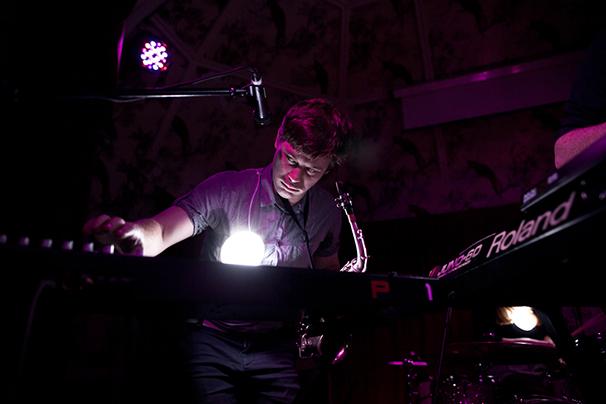
U.K.-based band Metronomy released their fourth studio album, “Love Letters,” on March 10.
This latest effort from the alternative-electronic group trades the clean, synth-based pop of previous album “The English Riviera” for fuzzier sounds. While a bold departure, the retro gimmick falls flat, making “Love Letters” a mediocre listen.
Sonically, “Love Letters” leans toward psychedelic and glam rock, but the album generally sounds like it is running on fumes. “Love Letters” ditches the idea of synth-based pop — which has been Metronomy’s modus operandi — entirely, in favor of a mellow ’60s or ’70s pop rock b-side, and the effect is boring.
The power of “The English Riviera” was centered around crisp beats, electro synths and powerful building melodies — it sounded like fresh, lo-fi electronic music with retro flavor.
The production of “Love Letters” ditches this dichotomy completely, bringing foggy disco vibes to the forefront with disastrous results. The latest album often dumps the synths and drum machines that drove “The English Riviera” into filters and fuzz, completely removing their power. To compensate, Metronomy brings lead singer Joseph Mount’s vocals to the forefront, but his uninspiring and sometimes even grating voice fails to carry the project.
Translating Metronomy’s simple synth and drum machine melodies into rock instrumentation sounds more flimsy than subtle. Simple melodies were successful on “The English Riviera” because of the polished, mechanical sound — “Everything Goes My Way” and “The Look” sounded like well-oiled machines playing funk.
New tracks like “The Upsetter” and “Monstrous” sound as if those same machines are now dusty and infused with cough syrup — groggy, numb and boring. The whole album sounds under-produced, more of a rough draft than a fourth studio album.
However, “Love Letters” does hit a few high notes. Despite its failures, Metronomy’s latest album may be the band’s best written release. Mount explores themes of emotional distance, dispassion and depression with some simple but truly touching words.
“We should never say that we drifted far/We should take a trip to the reservoir/Heartbeats drifting together,” he sings in “Reservoir.” Song to song, Mount clings numbly to a love he is not even sure he wants anymore. This interesting theme of internal conflict is explored excellently in simple words, and it is a shame that the corresponding sound falls so flat.
Though well-written, “Love Letters” has little sonic soul and drags almost immediately. A few oddball experiments like “I’m Aquarius” and “Reservoir” might resonate with listeners, but “Love Letters” is a forgettable effort that utterly lacks the punchy sound that made “The English Riviera” a hit.
A version of the article appeared in the March 13 print edition. Peter Slattery is a staff writer. Email him at [email protected].






















































































































































